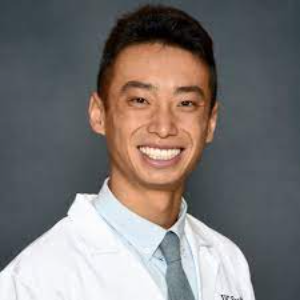Title : Characterizing the Cardiovascular Adaptations of Space Travel: A Systematic Review
Abstract:
Background: Space travel results in significant gravitational and radiation stress on both the molecular and systemic levels, resulting in myriad cardiovascular changes that have largely been poorly characterized.
Objective: To conduct a systematic review on the basic science and clinical adaptations of the cardiovascular system after exposure to real or simulated space travel.
Methods: A systematic review was conducted in accordance with the Preferred Reporting Items for Systematic Reviews and Meta-Analyses guidelines. The PubMed and Cochrane databases were searched in June 2020 with the key words ‘‘cardiology and space’’ and “cardiology and astronaut.” Only basic science and clinical studies in English concerning the study of cardiology and space were included. Case studies, case series, prospective and retrospective studies, and clinical trials that reported effects of space or simulated space conditions on the cardiovascular system were retrieved. Review articles, articles unavailable to the study team, letters to the editor, and clinical trial proposals were excluded. After full-text review, studies that did not reference cardiovascular changes (molecular or physiologic) in response to space travel (real or simulated) were excluded.
Results: Eighteen studies were included, comprised of 14 clinical and 4 basic science studies. On the genetic level, pluripotent stem cells in humans and cardiomyocytes in mice displayed increased beat irregularity, however, an increased incidence of arrythmia was not reflected in any clinical studies. The physiologic cardiovascular adaptations reflected primarily an increase in heart rate (6-20 beats per minute) during spaceflight, and an increased incidence of orthostatic hypotension after return to sea level. Hemoglobin concentration was also consistently decreased after return to Earth. No consistent change in systolic or diastolic blood pressure was observed during space travel.
Conclusion: The present systematic review demonstrated the possible genetic, hemodynamic, and autonomic changes induced by space travel. Changes in oxygen carrying capacity, blood pressure, and the potential of post-flight orthostatic tachycardia may serve as justification to screen for pre-existing anemic, hypotensive, and tachycardic conditions among astronauts. Nevertheless, space cardiology remains an expanding field of research, and further study is required to examine the effects of space conditions more accurately in humans. Due to the predicted rise in space travel, it is important to better understand the effect of space flight on the cardiovascular health of humans, a component critical for the success of future missions and the long-term well-being of those who travel to space.
What will audience learn from your presentation?
- Audience will better understand the potential impact of space travel on cardiovascular health, including the hemodynamic, autonomic and genetic changes due to space travel.
- This information can be used by the audience, especially healthcare professionals, as the knowledge presented herein is critical for the screening and caring of astronauts.
- The present systematic reveal summarizes the existing key finding in space cardiology, allowing other researchers to gain a comprehensive understanding of advances in space cardiology and what future directions exist.
- Faculty members may also utilize information presented herein for educational purposes and inform students of the present understanding of space cardiology.



